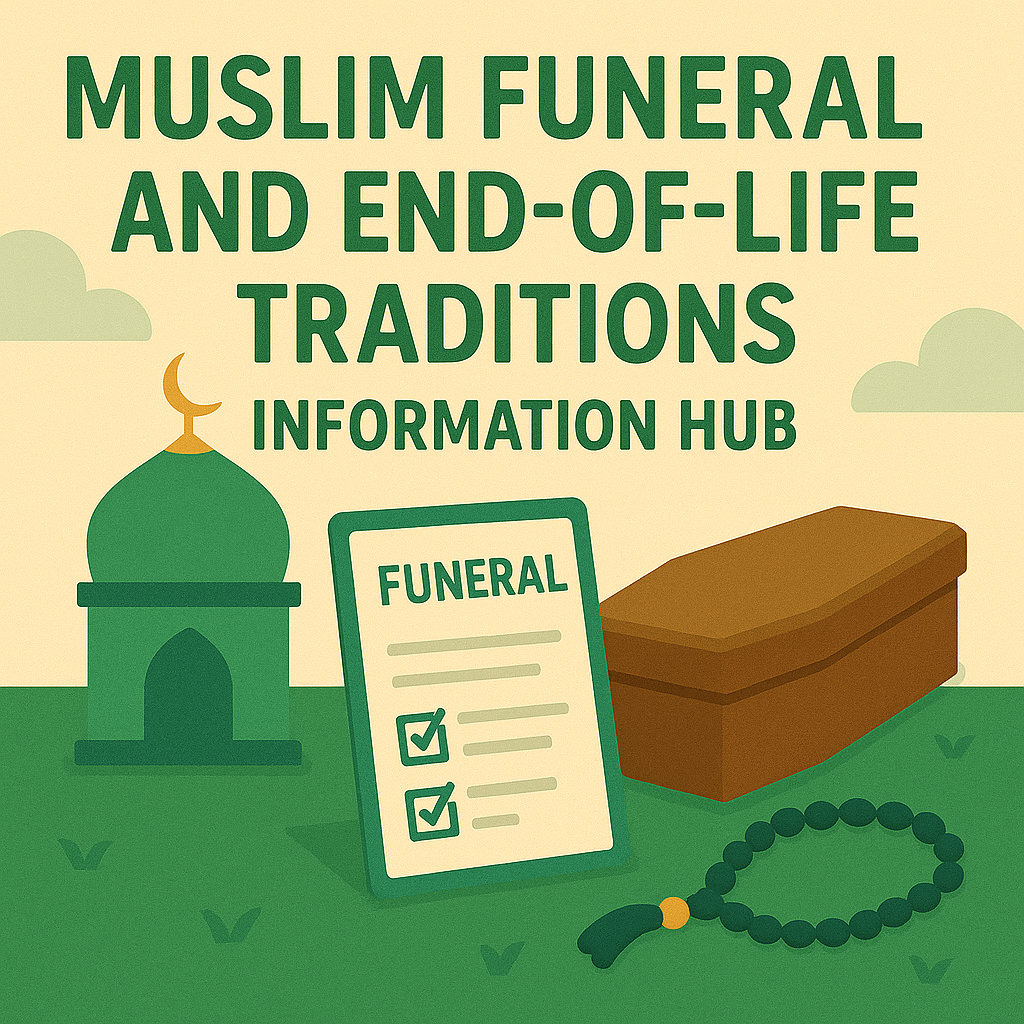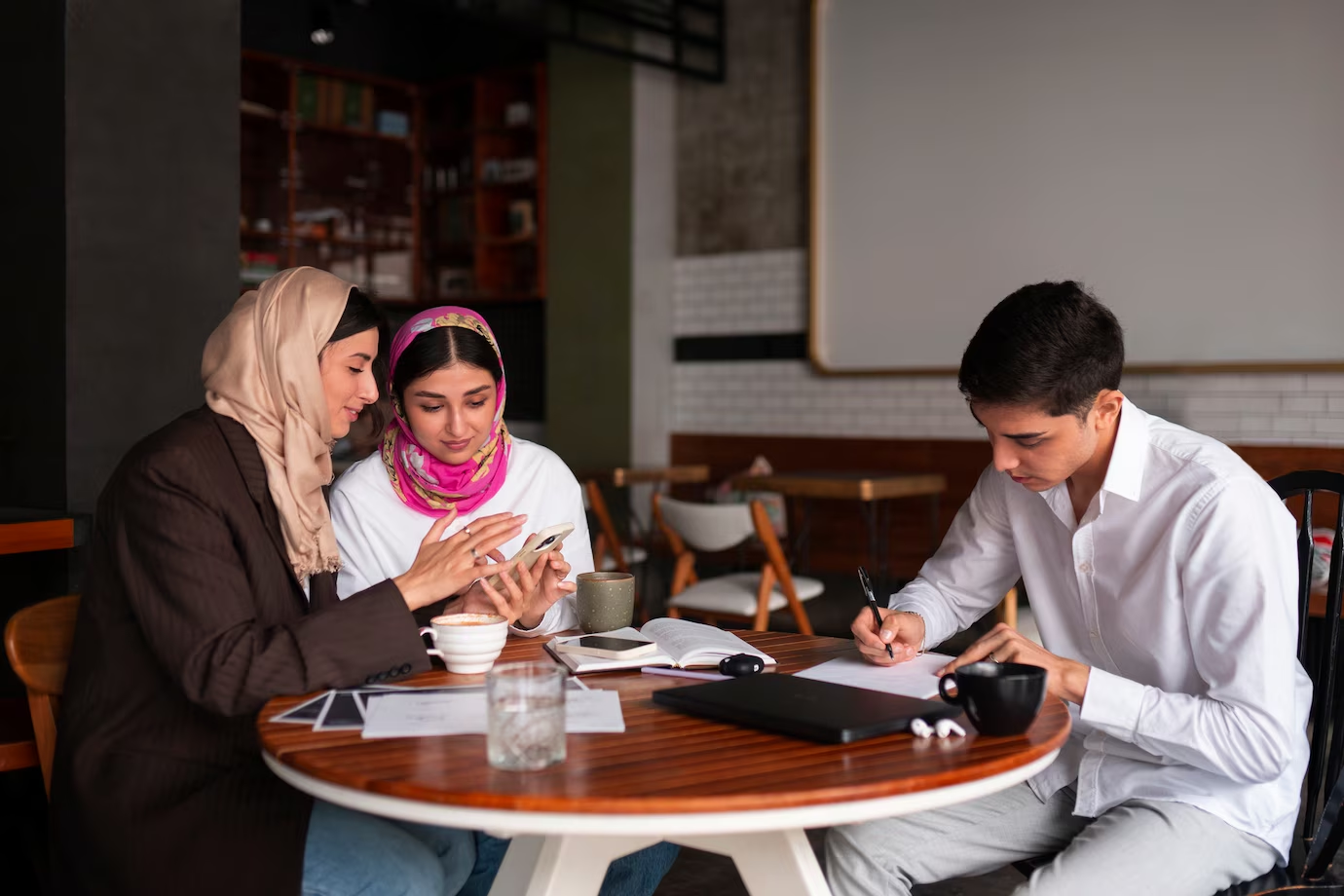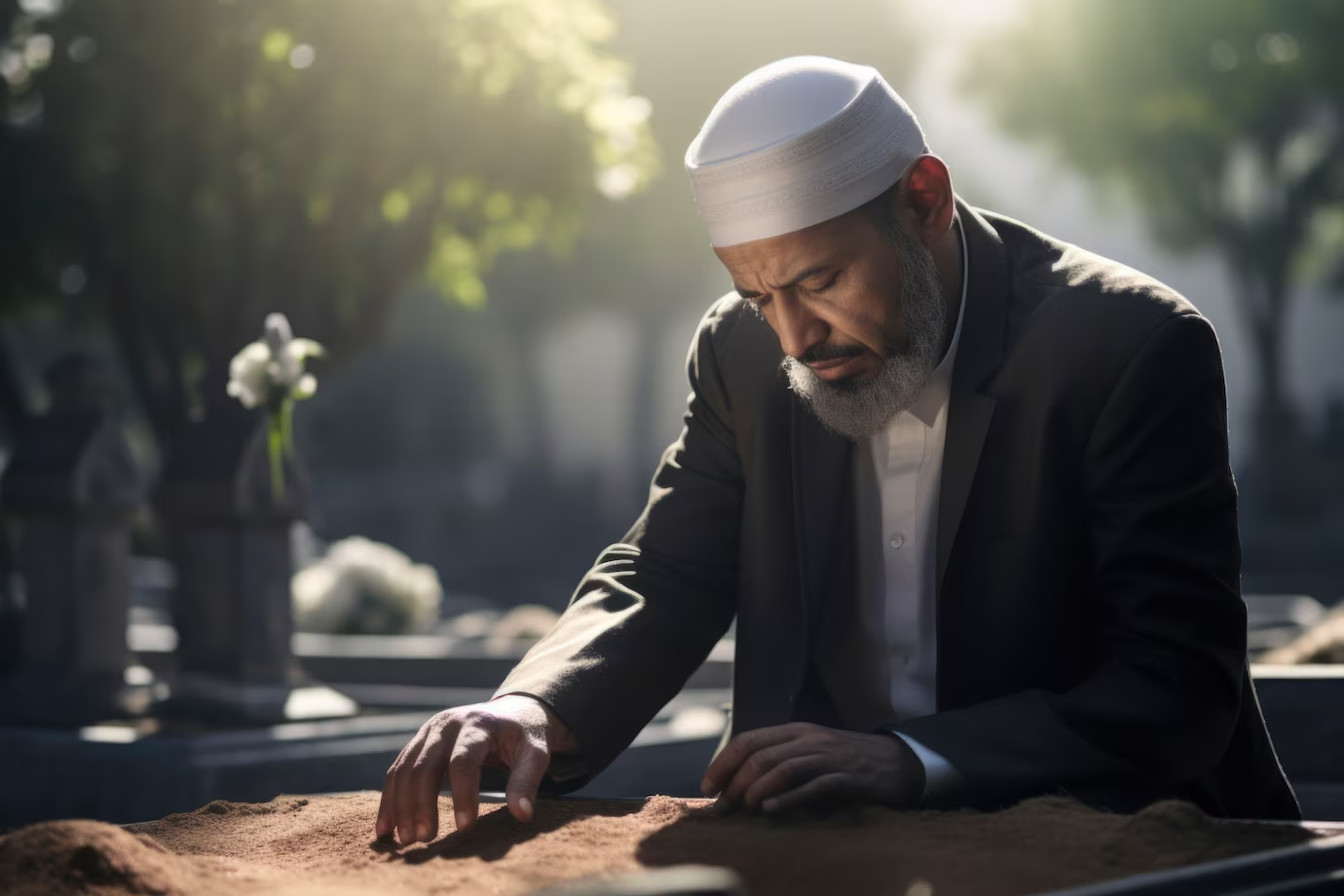A Journey of Faith, Honor, and Legacy
Muslim Funeral & End-of-Life Traditions
Islamic funeral and end-of-life traditions are deeply rooted in faith, community, and reverence for the deceased. Honoring these sacred rites ensures that loved ones are laid to rest with dignity, following the guidance of the Quran and Sunnah. From preparing for the final moments of life to burial and mourning practices, understanding these traditions helps families navigate grief while upholding the values of Islam.

Key Things To Know
Muslim funeral and end-of-life traditions are guided by Islamic teachings that emphasize dignity, simplicity, and the importance of community. The focus is on honoring the deceased, comforting the living, and preparing for the return to God.
- Burial takes place as soon as possible after death: Islamic tradition encourages burial within 24 hours, reflecting humility and the belief that the soul’s journey continues promptly after death.
- Cremation is not permitted: The body is considered sacred and must be returned to the earth intact. Cremation is strictly forbidden in Islamic law.
- The body is ritually washed and shrouded: A same-gender group performs ghusl (washing), followed by wrapping the body in a simple white cloth (kafan). This process is done with great care and spiritual intention.
- There is no embalming or viewing of the body: The focus is on privacy and respect. Embalming is typically avoided unless required by law.
- The Janazah (funeral prayer) is performed before burial: This brief, standing prayer is recited by the community and includes supplications for mercy, forgiveness, and peace for the deceased.
- Burial includes specific positioning and rituals: The body is placed in the grave on its right side facing Mecca (qibla), often without a casket if local laws allow. Mourners may help lower the body and place soil in the grave.
- Grave markers are usually simple: Extravagant monuments are discouraged in favor of humility and uniformity, though practices may vary by region or family preference.
- Mourning customs focus on prayer and remembrance: Family and community members may read the Qur’an, offer du’a (prayers), and visit the family to provide comfort.
- There is typically no formal wake or open casket visitation: Instead, emphasis is placed on immediate burial and spiritual preparation, with condolences offered afterward.
- Mourning periods are guided by Islamic teachings: A widow may observe a four-month and ten-day period of mourning (iddah), while others are encouraged to grieve with patience and faith. Public displays of excessive grief are discouraged.
Articles
Frequently Asked Questions
Disclaimer: The information provided on this page is for general informational purposes only and should not be considered legal advice. Please consult with a qualified attorney for advice specific to your situation.
Disclaimer: The information provided on this website and by Buried in Work is for general informational purposes only and should not be considered legal advice. Please consult with a qualified attorney or subject matter expert for advice specific to your situation.




